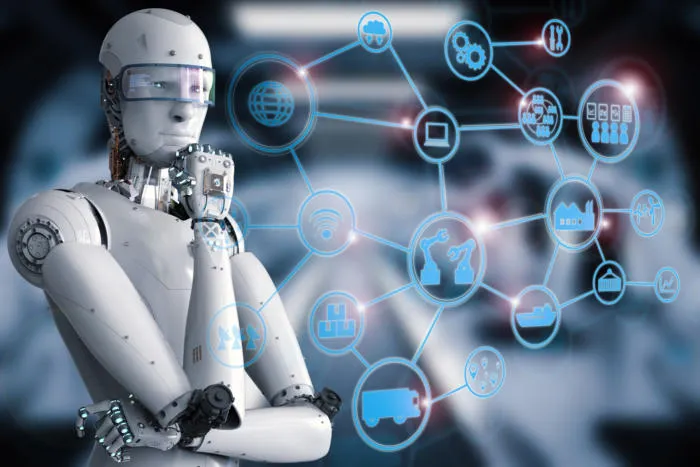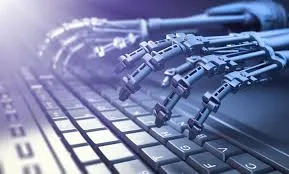The normal, and repeating, perspective on the most recent forward leaps in man-made reasoning exploration is that conscious and savvy machines are simply not too far off. Machines comprehend verbal orders, recognize pictures, drive vehicles, and mess around better than we do. How much longer would it be able to be before they stroll among us?
The new White House report on computerized reasoning takes a suitably suspicious perspective on that fantasy. It says the following 20 years probably won't see machines "show extensively relevant knowledge tantamount to or surpassing that of people," however it proceeds to state that in the coming years, "machines will reach and surpass human execution on an ever-increasing number of undertakings." But its suspicions about how those capacities will create missed some significant focuses.
As an AI analyst, I'll let it be known was ideal to have my own field featured at the most significant level of American government, yet the report concentrated only on what I call "the exhausting sort of AI." It excused down the middle a sentence my part of AI research, into how advancement can help grow ever-improving AI frameworks, and how computational models can assist us with seeing how our human knowledge developed.
The report centers around what may be called standard AI devices: AI and profound learning. These are such advancements that have had the option to play "Danger!" well, and beat human Go aces at the most convoluted game at any point created. These current canny frameworks can deal with gigantic measures of information and make complex counts rapidly. In any case, they do not have a component that will be critical to building the conscious machines we picture having later on.
Responsive machines are essentially a piece of Artificial Intelligence.
Responsive machines are essential in that they don't store 'recollections' or use past encounters to decide future activities. They essentially see the world and respond to it. IBM's Deep Blue, which vanquished chess grandmaster Kasparov, is a receptive machine that sees the pieces on a chessboard and responds to them. It can't allude to any of its related involvements, and can't improve with training.
The most essential kinds of AI frameworks are absolutely responsive and have the capacity neither to shape recollections nor to use past encounters to illuminate current choices. Dark Blue, IBM's chess-playing supercomputer, which beat global grandmaster Garry Kasparov in the last part of the 1990s, is the ideal case of this sort of machine.
Dark Blue can recognize the pieces on a chessboard and expertise each moves. It can make forecasts about what moves maybe next for it and its rival. Furthermore, it can pick the most ideal moves from among the potential outcomes.
Be that as it may, it doesn't have any idea of the past, nor any memory of what has occurred previously. Aside from a seldom utilized chess-explicit guideline against rehashing a similar move multiple times, Deep Blue disregards everything before the current second. Everything it does is take a gander at the pieces on the chessboard as it stands at the present time and look over conceivable next moves.
This kind of insight includes the PC seeing the world legitimately and following up on what it sees. It doesn't depend on an interior idea of the world. In an original paper, AI scientist Rodney Brooks contended that we should just form machines this way. His primary explanation was that individuals are not truly adept at programming precise reenacted universes for PCs to utilize, what is brought in AI grant a "portrayal" of the world.
The current smart machines we wonder about either have no such idea of the world or have an extremely restricted and concentrated one for its specific obligations. The development in Deep Blue's structure was not to expand the scope of potential films the PC considered. Or maybe, the designers figured out how to limit its view, to quit seeking after some likely future moves, in light of how it evaluated their result. Without this capacity, Deep Blue would have should have been a considerably more impressive PC to really beat Kasparov.
Additionally, Google's AlphaGo, which has beaten top human Go specialists, can't assess all potential future moves either. Its investigation strategy is more modern than Deep Blue's, utilizing a neural system to assess game turns of events.
These techniques do improve the capacity of AI frameworks to play explicit games better, yet they can't be effectively changed or applied to different circumstances. These modernized minds have no understanding of the more extensive world – which means they can't work past the particular errands they're allocated and are handily tricked.
They can't intelligently partake on the planet, the manner in which we envision AI frameworks one day may. Rather, these machines will act the very same way every time they experience a similar circumstance. This can be excellent for guaranteeing an AI framework is dependable: You need your self-governing vehicle to be a solid driver. Be that as it may, it's awful in the event that we need machines to genuinely draw in with, and react to, the world. These easiest AI frameworks won't ever be exhausted, or intrigued, or miserable.

